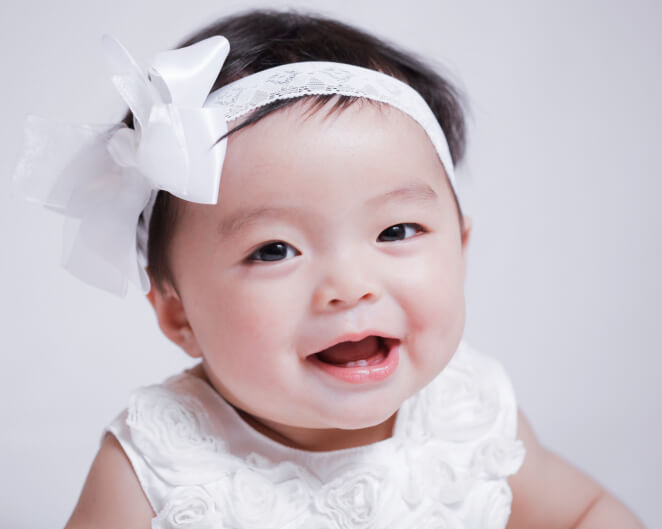
FAQs About Baby Teeth
The appearance of that first tooth is a sign that your baby is growing and developing and soon will be crawling, walking and talking. But the arrival of baby teeth also marks the beginning of an extremely important responsibility for parents: dental care. To better understand some of the many issues and obligations that come with primary teeth, consider these frequently asked questions about baby teeth.
What is teething?
Teething is a baby’s normal response to the arrival of those first teeth and involves everything from drooling, chewing and fussiness to trouble sleeping. The first symptoms often arrive days or weeks in advance of that first tooth, which on average, breaks through between the 4th and 7th months. Many babies also have symptoms when their first molars appear, usually around a baby’s first birthday. The severity of the symptoms can vary significantly from child to child, and your dentist may decide to order acetaminophen or ibuprofen for the discomfort. Massaging the inflamed area with a cool wash cloth and giving your baby teething rings that have been refrigerated can be quite soothing, however, never give your child anything frozen that could lead to an injury.
Do cavities matter?
The question is commonly raised because the 20 primary teeth will soon be replaced by 32 permanent teeth. However, experts say baby teeth have many important functions, including helping your child to both chew and talk properly. In addition, those baby teeth form a path of sorts for the permanent teeth to follow by holding space in the mouth. Finally tooth decay isn’t always limited to the tooth where a cavity appears. The bacteria can lead to an infection that can spread to other teeth and the gums.
Can a baby bottle cause tooth decay?
This condition is actually the No. 1 dental issue for kids 3 years old and younger, according to experts. One of the major causes of this condition, commonly known as BBTD, most commonly occurs when babies are put to bed with a bottle. The sugar in the formula, milk or juice is exposed to the child’s primary teeth for many hours. Over time this can lead to tooth decay, infection and loss of baby teeth. The American Academy of Pediatric Dentistry warns against giving babies a bottle to help them sleep and also recommends that children not be allowed to have a bottle for prolonged periods between meals. In addition, kids should be introduced to a cup once they reach their first birthday. Bottles can be given at naptime or bedtime to offer some comfort, but experts say it’s best that the bottle be filled with water as opposed to a sugary drink.